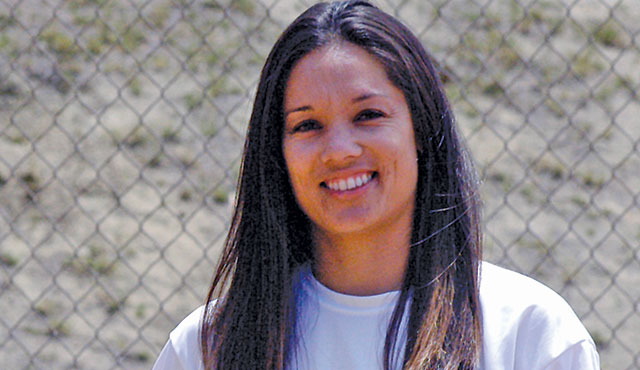Sharing the same athletes has long been a source of tension between high school coaches and their counterparts at surrounding travel ball clubs.
Because many of their athletes train and compete year-round in their respective sports, the Trinity League deals with this touchy relationship more than most.
Some schools have apparently decided, if you can’t beat them, hire them.
In the past two seasons, Mater Dei, JSerra and Santa Margarita have brought aboard softball coaches with extensive travel ball experience.
Most recently, Santa Margarita hired Toni Mascarenas as an assistant coach, bringing a treasure trove of experience as a player and coach.
Mascarenas starred at Pacifica High School and the University of Arizona, leading the NCAA in home runs in 2001. She had a very successful run as head coach at Mission Viejo High before most recently coaching the 14U Batbuster club team.
A year ago, head coaches Katie Stith of JSerra and Sean Brashear of Mater Dei were making the same transition after carving their niche in high-level travel ball.
Brashear said some of the biggest perks coaching at the high school level is having a set season schedule, including a league of similarly competitive teams, all-league teams, and better media coverage.
“In travel ball, it’s just like a business gauntlet,” he said.
Stitch said the other coaches were supportive and welcoming when she arrived for the first league meeting.
“It’s only going to make the whole league better,” she said.
Tom Tice, who has been at Rosary for 27 years, said the new coaches bring a wealth of knowledge and know how to convey their message.
“Whether you’re big-time travel ball or not big-time travel ball, you still have to coach a group of kids,” Tice said. “It’s more or less who shows up at your school, which is a challenge that’s fun. Depending on who you have in that certain year, you just roll with it.”
In the world of travel ball, if a team is short a third baseman for an upcoming tournament or showcase, they can recruit one for the weekend.
At the high school level, if a team is short a third baseman, they usually fill the spot with a player from another position.
There’s also the loyalty issue.
Since travel ball is aimed at individual players gaining attention from college recruiters, players will often move from team to team to increase their visibility.
“Club is sometimes nomad and people travel from team to team,” Santa Margarita head coach John FitzPatrick said. “They’re not happy playing shortstop on one team, they’ll go to another.”
Whether you’re a coach or player transitioning from travel ball to high school, the beginning of the season can be challenging.
Travel ball often has a time limit prevents games from lasting the full seven innings. In high school, there is no time limit.
“It’s a lot different going those last three innings and grinding those last nine outs out,” FitzPatrick said. “Pitchers have to be ready for that.”
Good advice, considering high school games are the same format as college.
“As much as travel ball gets you recruited for college, the thing that’s most like playing in college is playing in high school,” Tice said. “You’re a student athlete, and you’re doing it at least six days a week.”

